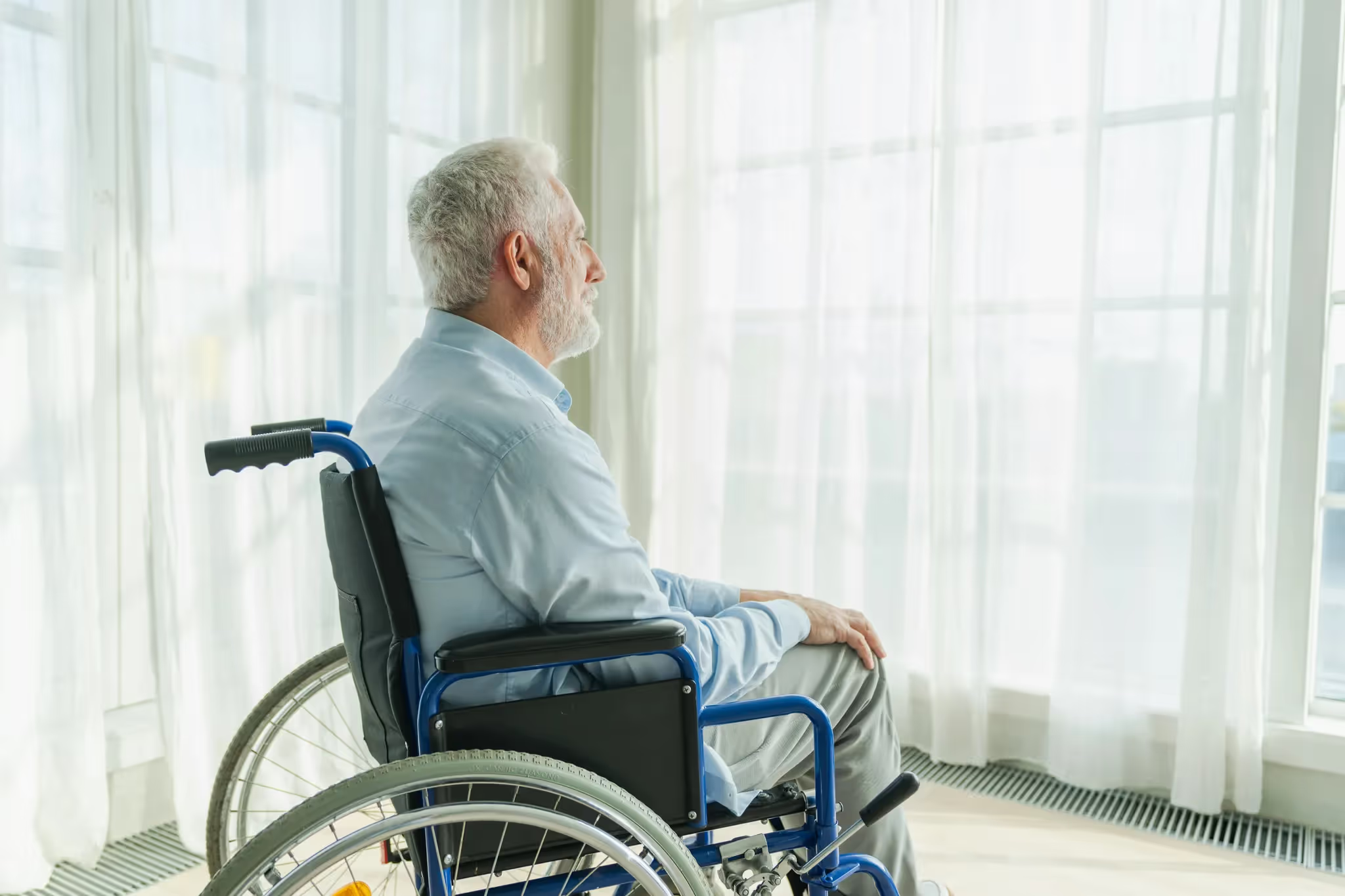table of contents
Elder justice initiative research suggests that around 10% of Americans who are at least 60 years old have experienced elder abuse at the hands of their family members, a care provider, a long-term care facility, or a nursing home.
If you or a loved one faces this situation, then you need to know how to report nursing home neglect or other forms of elder abuse to the proper authorities. Taking this step not only protects your loved one physically but also helps support their legal rights in the event they want to file a claim against the neglectful party.
Find out exactly what to do if you suspect nursing home neglect or abuse and how to pursue justice right here.
Warning Signs of Nursing Home Neglect
Many seniors never report being abused or neglected in long-term care facilities because they’re dependent on the facilities, staff, and care of the very people who are abusing them. For that reason, it’s necessary that you know how to identify nursing home abuse signs and understand some of the most common conditions that come about due to nursing home negligence.
Some signs of abuse are apparent. For instance, dehydration in elderly patients shouldn’t be an issue unless there is a medical condition creating the problem. Even so, staff should be implementing care to prevent this. Bedsores and neglect also go hand in hand since staff should be moving the elderly residents frequently. Behavior changes and abuse also tend to happen together, so if you notice your loved one acting fearful, more reserved, or anxious, then it’s worth investigating.
Financial abuse in nursing home situations is also a concern. Look for signs like depleting savings, a change in spending habits, or asking you to withdraw cash. Your loved one might also express a desire to suddenly change their will.

Nursing home bruises are fairly common and might not be a sign of abuse unless the bruising happens regularly or is unexplained. Your elderly loved one might also display personality changes as a result of becoming less independent, more chronically ill, or as aging takes its toll.
If you notice unexplained infections, nursing home hygiene issues, or other signs of abuse, then you might be obligated to report the incident depending on your status. Nursing home abuse reporting requirements make some individuals, like healthcare professionals, mandatory reporters. It’s also typically the morally right thing to do. If you see something, then say something.
How to Document Evidence of Nursing Home Abuse Effectively
You need to know what to do if you suspect nursing home neglect.
- First, get your elderly loved one the medical attention they need from a new doctor. This provider can document any signs of abuse or neglect as well as treat any injuries.
- Start documenting evidence by saving any documents from the medical visit, costs associated with finding new care arrangements for your loved one, and other expenses you incur.
- Photograph visible injuries or neglect, such as bedsores or unsanitary conditions, and preserve financial records to identify potential financial exploitation. Maintain a detailed journal noting specific incidents, behavioral changes, and timelines, and save all related correspondence with the nursing home staff.
- Collect witness statements from others who may have observed abuse or neglect, and file formal written complaints, keeping copies of all communications.
Reporting Nursing Home Neglect to Authorities
Reporting nursing home abuse is a sensitive matter that requires some level of tact and skill. According to the National Center on Elder Abuse, you should report any emergency to 911, but other reports can be made to the local adult protective services in your area. If the abuse or negligence occurred in an assisted living facility, nursing home, or licensed care facility, you will also want to report the situation to the state licensing agency.
Common Mistakes to Avoid When Reporting Elder Abuse
The most common mistake people make is not promptly reporting suspected nursing home abuse. In a 2017 case from California (Smith v. CareHome Inc. — name altered), an elderly woman suffered repeated physical abuse in a nursing home. However, family members waited nearly six months before officially reporting the suspected abuse. By the time authorities investigated, crucial evidence like medical records had been altered, and bruising had faded.
The court found that the delay caused "spoliation of evidence". The plaintiff’s claim was significantly weakened, resulting in a settlement much lower than initially projected — about 30% of the potential value.
Quickly reporting elder abuse is not only important from an evidence preservation standpoint, but you also need to be mindful of the statute of limitations. If too much time has passed since the alleged abuse, your claim will be denied on statutory grounds, regardless of how much evidence you have.
The next most common mistake family members make is not thoroughly documenting suspected elder abuse. In a 2019 case in New York (Doe v. Private Home Aides), a family suspected that their elderly relative was being financially exploited. They verbally complained to management but never filed a written report or kept detailed records. When the case went to trial, the lack of documentation meant that critical details could not be proven.
Understanding how to report nursing home abuse also means avoiding the most common mistakes and pitfalls associated with the reporting process, filing a claim, and prompting an investigation. Since neglect and malpractice are often difficult to prove and investigate, it’s often best to work closely with an attorney.
Why You Should Consider Hiring a Nursing Home Abuse Lawyer
Typically, hiring an elder abuse attorney is a huge advantage if you plan on pursuing justice after the incident. A strong attorney will help you investigate what happened, document your losses, compile your claim, value your losses, and negotiate with the other party. The right attorney will be your best legal advocate.
How to Protect Your Loved One After Reporting Abuse
If your loved one is in an abusive situation, then it’s best to get them to safety as soon as possible. This may mean relocating them until the situation is investigated and resolved. Consider switching medical providers or moving to a different long-term facility. Keep a record of your expenses, but continue to prioritize your loved one’s safety.
Resources and Contacts for Nursing Home Abuse Victims and Families
One great resource for individuals who have been hurt by nursing home abuse and their families is their state’s long-term care ombudsman. Every state has a long-term care ombudsman program that seeks to respond to complaints, resolve issues, and uphold the health and safety of individuals who live in LTC facilities.
Another source of help is the Department of Health and Human Services website. This site is a great resource for various self-help links to help you file a complaint.
Another valuable resource for family members is the National Center on Elder Abuse (NCEA). The NCEA offers educational materials, an Elder Locator service, and directories to help you connect with local agencies and organizations dedicated to addressing elder abuse and neglect.
Our Team of Elder Abuse Advocates at Kermani LLP Can Help
Experiencing nursing home neglect or abuse often leads to a windfall of other losses. From needing additional medical care, seeking out new living arrangements, and going through emotional distress, it might make the most sense to consult with a lawyer about everything that happened.
Not only can a lawyer ensure you understand how to report abuse in a nursing home, but they can also assist with all the legal aspects of filing a claim for financial compensation. Our team here at Kermani LLP has over a decade of experience helping clients and families like yours.
Leave your contact details on our online form now to get in touch with our team of elder abuse attorneys and get started on your pursuit of justice today. If you’d prefer, then you can also call our office at (855) KERMANI.
Discover your legal options. Get a free case review, and pay nothing unless we win.
Receive a FREE case assessment
Every case is unique, so we tailor our approach to meet your specific needs.











